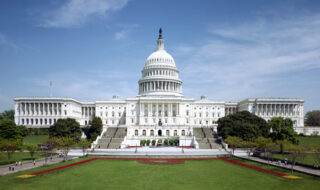November 16, 2022
Victories and defeats for small business across the country
Election Explainer: Results in Key States and What They Mean for Small Business
- Millionaire’s Tax: Proposition 30 in California would have increased the tax on personal income above $2 million by 1.75%, with the revenue going towards increased subsidies to zero-emission vehicles. NFIB opposed the measure, and 58.6% of Californian voters said no to Prop 30.Meanwhile, Question 1 in Massachusetts would institute a graduated income tax that levies a 4% surcharge on all income over $1 million. This includes income from pass-through small businesses like partnerships, limited liability companies, subchapter S-corporations, and sole-proprietorships. NFIB also opposed Question 1, but unlike the similar ballot question in California, Question 1 passed with 52% of the vote.
- Minimum Wage: In Nebraska, Initiative 433 would raise the state minimum wage gradually from $9 to $15 an hour by 2026. The ballot initiative also calls for annual inflation adjustments. Despite NFIB opposition, Initiative 433 passed with over 60% of the vote.Nevada also had a minimum wage ballot initiative, Question 2, which would increase the minimum wage from $9.50 an hour (for employees with health benefits) and $10.50 an hour (for employees without health benefits) to a flat $12 an hour for all employees. It would also remove existing annual inflation adjustments to the minimum wage. Question 2 passed with 55% of the vote.
- Union Law: Almost 70% of Tennesseans agreed with NFIB when they voted in favor of Question 1 to become a right-to-work state, solidifying the law in the state’s constitution. Right-to-work states guarantee that workers cannot be forced to join a labor union, but instead may choose whether they wish to be a member and pay union dues. Meanwhile, Illinois became the first state in the union to pass a constitutional amendment creating the constitutional right for state residents to join a union. Almost 59% of Illinois voters said yes to the NFIB-opposed Amendment 1, which also prohibits the Illinois state government from ever passing a right-to-work law.
Get to know NFIB
NFIB is a member-driven organization advocating on behalf of small and independent businesses nationwide.
Related Articles

July 8, 2025
AUDIO: NFIB’s Jeff Brabant Discusses BOI Repeal on SiriusXM�…
NFIB Vice President of Federal Government Relations Jeff Brabant joined POT…
Read More


July 8, 2025
NEW NFIB SURVEY: Small Business Optimism Remains Steady in June
NFIB’s Small Business Optimism Index edged down 0.2 of a point to 98.6, sli…
Read More


July 7, 2025
New Op-Ed Highlights Challenge of Political Stalemate for PA Sm…
NFIB’s Greg Moreland wrote about why small businesses need tax reform act…
Read More


July 4, 2025
America’s Small Businesses Applaud President Trump, Congress…
“President Trump and Congress have the gratitude of 33 million American s…
Read More







